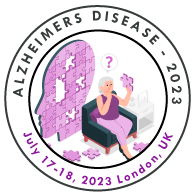
Precious igbinigie
University of Wolverhampton, UK
Title: Association of egg consumption with the risk and prognosis of dementia among the older population
Biography
Biography: Precious igbinigie
Abstract
Dementia is one of the world's biggest health problems and is a significant public health challenge becoming more common as the aged population grows. There is no known cure for dementia; thus, more efforts have been made to investigate its risk or protective factors for prevention. Previous studies suggested moderate egg consumption (one egg per day) is not associated with cardiovascular disease. While a separate study reported intakes of eggs and cholesterol were related to higher all-cause, cardiovascular and cancer mortality. However, the increased mortality was attributed to cholesterol intake. Therefore, it is unclear whether the consumption of eggs was associated with the risk of dementia and the outcomes of people with dementia. Also, few studies have specifically examined factors influencing egg consumption in older people, despite the ageing world population. This research project aimed to conduct a systematic literature review, analyse data from case-control/cohort studies and discuss the determinants and impacts of egg consumption on the incidence and mortality of dementia in older people.
This study employed a systematic literature review and a quantitative approach based on a Guangzhou case-control study conducted from July to October 2020 in China. The study comprises 466 participants aged ≥50 (233 cases and 233 control, respectively). In addition, Chinese five province cohort data comprising 6071 participants aged ≥60 was conducted in 2007-2009. Using a standard interview method, participants' socio-economic status, disease risk factors and egg consumption over the past two years were documented at baseline, and this was followed up until 2012. The third study, the UK biobank prospective study, involves 500,000 participants aged 40-69 years drawn from the National Health register (NHS) since 2006.

